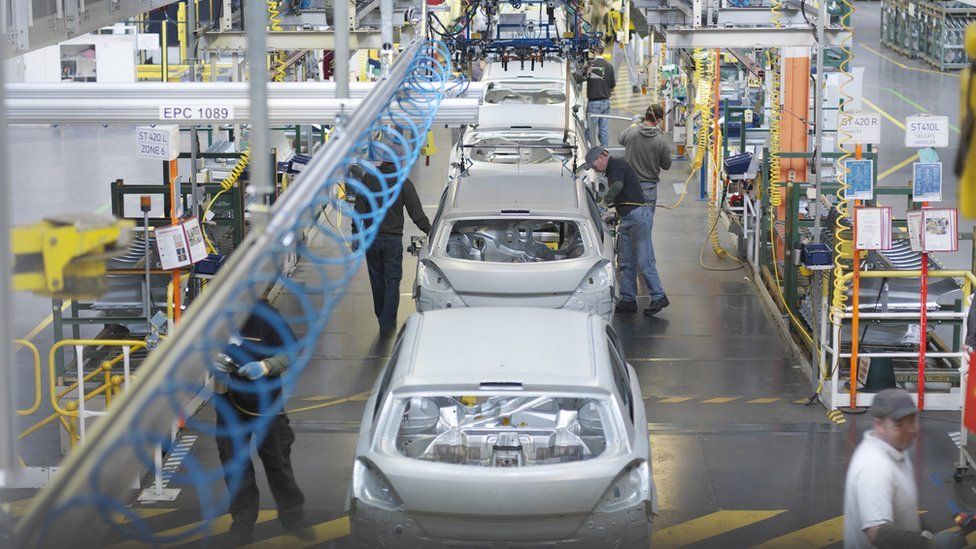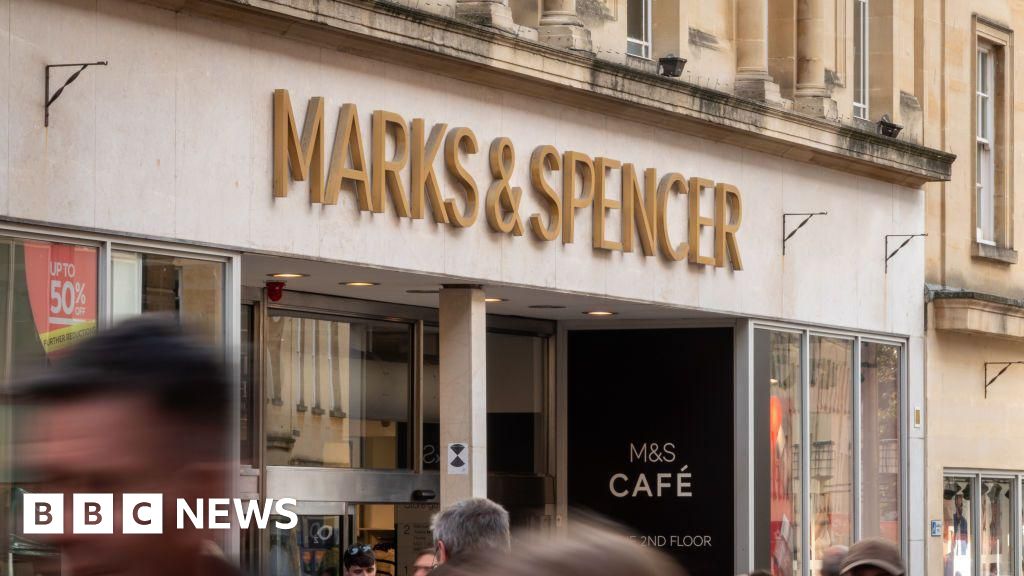ARTICLE AD BOX
 Image source, Getty Images
Image source, Getty Images
By Michael Race
Business reporter, BBC News
The UK's car industry could disappear unless the UK follows the US and EU to help with the transition to electric, a veteran of the sector has warned.
It was "probable" car firms would leave the UK without a huge subsidy package similar to the billions in help the US is providing, Andy Palmer said.
The sector is facing the "last throw of the dice", said Mr Palmer, who has had senior jobs at Nissan and Aston Martin.
The chancellor has said the UK will not go "toe-to-toe" with the US and EU.
Jeremy Hunt told the Times newspaper that the UK's approach to attract investment would be "better".
Mr Palmer is now chairman of electric battery firm Inno-bat, but has previously worked as chief operating officer at Nissan, former chief executive of Aston Martin.
He told the BBC's Today programme that said the UK was "managing decline" in its car-making industry, but had a "last opportunity" to boost the sector and jobs in the move to electric vehicles.
However, he warned huge subsidy packages were needed for UK-based companies, similar to such schemes announced in the US and being consulted on currently by the EU>
If such schemes are not created, Mr Palmer said it was "not only possible, it's probable" that the car manufacturers currently based in the UK would leave and go elsewhere.
"You are into a period of either you compete... or you manage the decline of the British industry down to fundamentally next to zero," he said.
"We have the last throw of the dice in order to bring back some part of that industry, if we don't then we have to look for alternative employments for the 820,000 people."
Different approach
The warning comes after the US announced the Inflation Reduction Act (IRA), which offers billions of dollars in subsidies and tax credits to US businesses producing greener technologies, including electric vehicles, renewable electricity and sustainable aviation fuel.
The EU has responded with plans for a Net Zero Industry Act to increase its subsidies for green industry.
Mr Hunt said the UK would not go toe-to-toe with its allies and get involved what he called "some distortive global subsidy race".
"Our approach will be different - and better," Mr Hunt said.
The number of new cars made in the UK sunk to its lowest level for 66 years in January, with firms warning the country was not doing enough to attract manufacturers and was lagging behind, particularly on offering state aid to companies.
Figures from the Society of Motor Manufacturers said the 10% drop was the worst performance since 1956.
The US's move already has vocal critics in the UK government, with Business and Trade Secretary Kemi Badenoch describing it as "protectionist" and Energy Secretary Grant Shapps stating it was "dangerous".
Some fear it gives the US an unfair competitive advantage, and that it is an attempt to lure high-tech manufacturing companies to the US.
"With the threat of protectionism creeping its way back into the world economy, the long-term solution is not subsidy but security," Mr Hunt said.

 2 years ago
35
2 years ago
35








 English (US) ·
English (US) ·